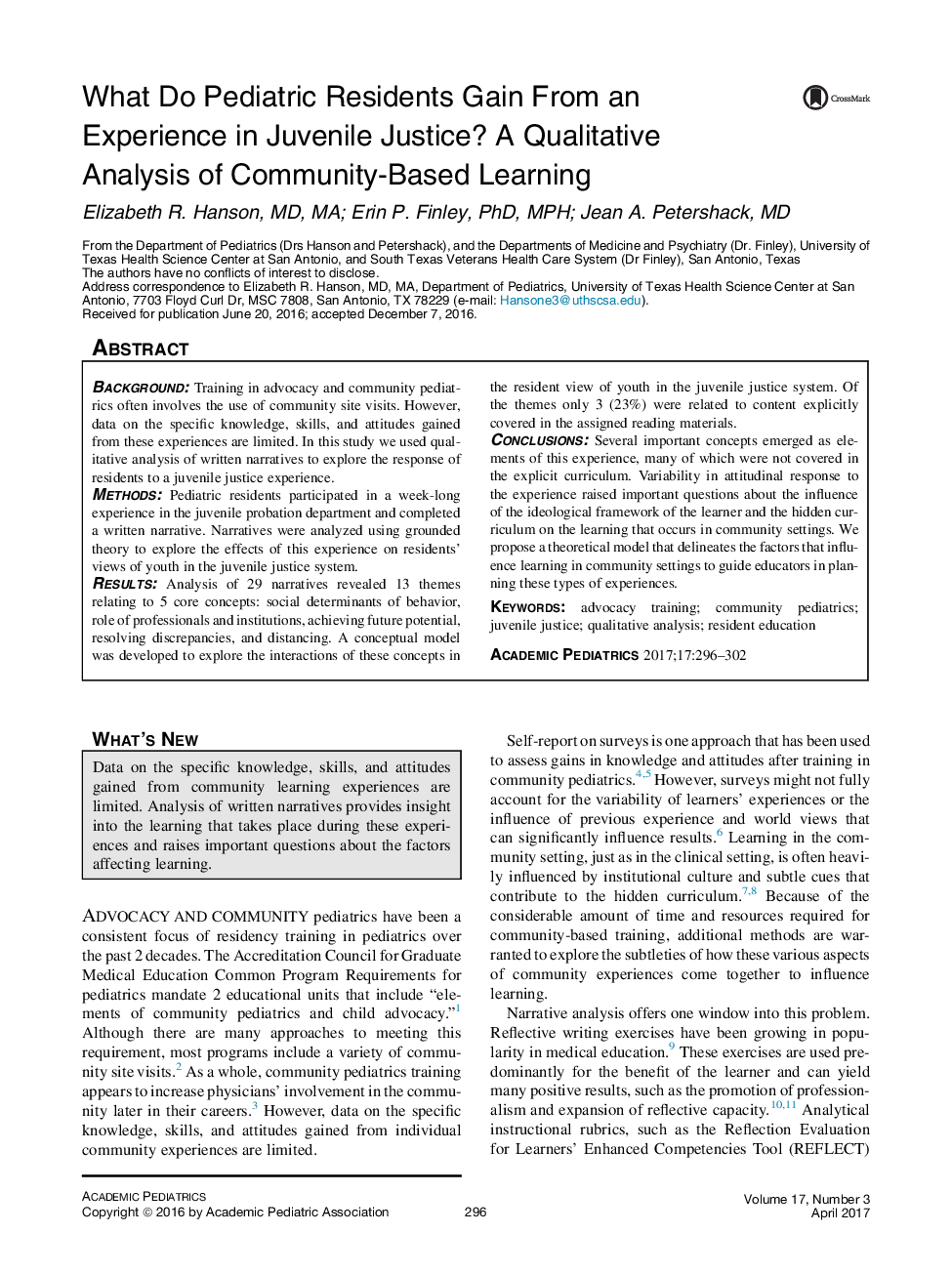| Article ID | Journal | Published Year | Pages | File Type |
|---|---|---|---|---|
| 5717001 | Academic Pediatrics | 2017 | 7 Pages |
BackgroundTraining in advocacy and community pediatrics often involves the use of community site visits. However, data on the specific knowledge, skills, and attitudes gained from these experiences are limited. In this study we used qualitative analysis of written narratives to explore the response of residents to a juvenile justice experience.MethodsPediatric residents participated in a week-long experience in the juvenile probation department and completed a written narrative. Narratives were analyzed using grounded theory to explore the effects of this experience on residents' views of youth in the juvenile justice system.ResultsAnalysis of 29 narratives revealed 13 themes relating to 5 core concepts: social determinants of behavior, role of professionals and institutions, achieving future potential, resolving discrepancies, and distancing. A conceptual model was developed to explore the interactions of these concepts in the resident view of youth in the juvenile justice system. Of the themes only 3 (23%) were related to content explicitly covered in the assigned reading materials.ConclusionsSeveral important concepts emerged as elements of this experience, many of which were not covered in the explicit curriculum. Variability in attitudinal response to the experience raised important questions about the influence of the ideological framework of the learner and the hidden curriculum on the learning that occurs in community settings. We propose a theoretical model that delineates the factors that influence learning in community settings to guide educators in planning these types of experiences.
